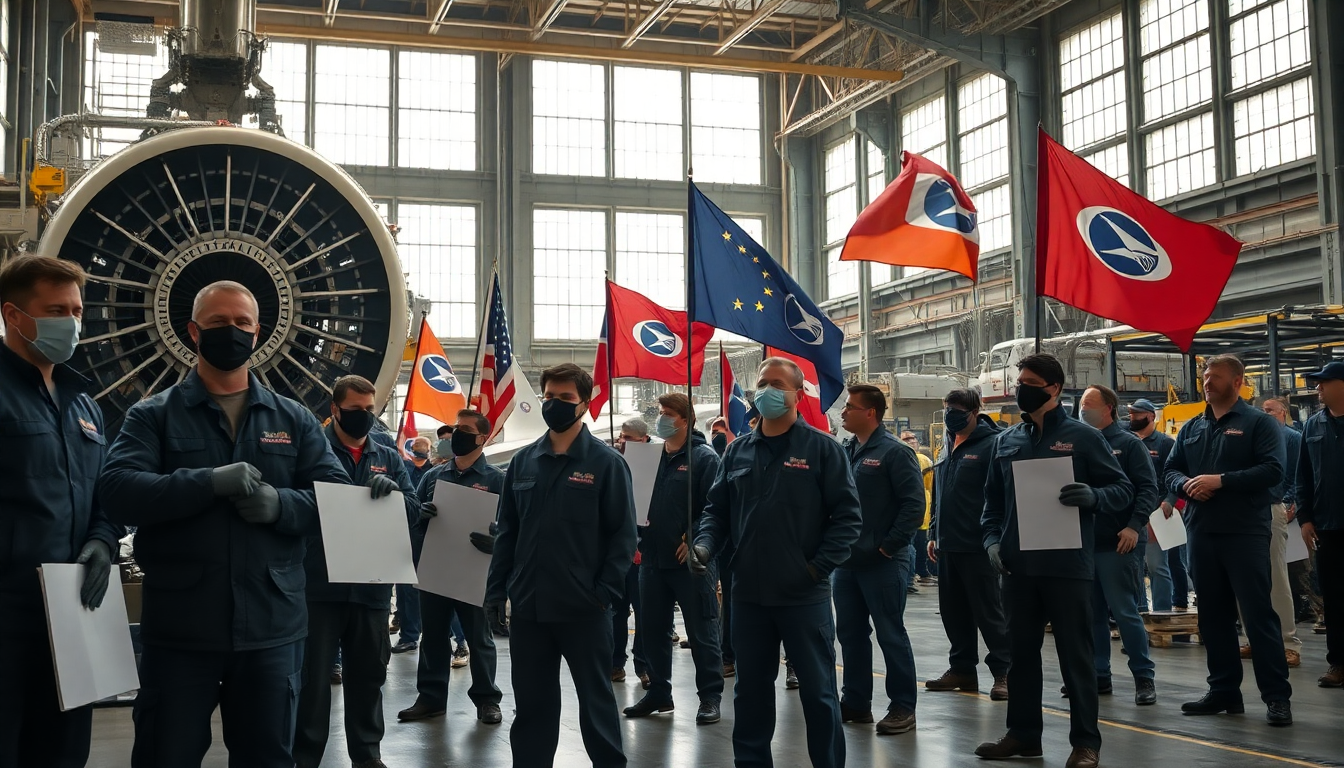Table of Contents
In a notable escalation of labor tensions, thousands of workers at Boeing facilities across the United States have kicked off a strike, with plants in St. Louis and Mascoutah feeling the most impact. This action is rooted in unresolved negotiations about wage increases and contract terms, echoing broader issues that are currently shaking up the aerospace sector.
With the International Association of Machinists and Aerospace Workers rallying its members, the consequences of this strike could ripple through the industry.
Context of the Strike
The strike was sparked by the rejection of a modified four-year labor agreement by around 3,200 local union members.
This decision came after a week-long cooling-off period, during which workers had previously turned down an offer that included a 20 percent wage hike and a $5,000 bonus. Union leaders are making it clear: the skilled workforce that builds military aircraft and defense systems deserves a contract that not only secures their financial stability but also recognizes their invaluable expertise.
Isn’t it time their contributions are properly acknowledged?
As negotiations fell apart, Boeing was prepared for the strike, especially since its latest offer didn’t offer a better wage increase and even removed a provision related to overtime pay. This led to disappointment within the company, which had highlighted significant wage growth in earlier proposals.
Now, Boeing executives are putting contingency plans in place to ensure operations can continue smoothly amid the strike.
Economic Impact and Industry Response
Boeing’s Defense, Space & Security division, which accounts for over a third of the company’s revenue, could face potential disruptions due to this labor action. However, company executives, including CEO Kelly Ortberg, have tried to downplay the expected impact, claiming that this strike is much smaller than a previous walkout involving 33,000 workers in the commercial jetliner segment.
They assert that the current situation is manageable and won’t lead to significant operational setbacks. But can they really afford to be so optimistic?
This strike is happening against a backdrop of major challenges for Boeing, including past federal investigations related to safety incidents with the 737 Max aircraft.
The company has been gradually working on increasing its production rates while sticking to regulatory requirements—a task made even trickier by ongoing labor disputes. The strike could complicate things further, although executives remain cautiously optimistic about their ability to handle the situation.
Future Outlook and Considerations
As the strike continues, it’s essential to think about its long-term implications for labor relations in the aerospace industry. This labor action not only sheds light on the immediate concerns of workers but also raises broader questions about the future of labor practices and contract negotiations in the industry. How will Boeing respond, and what concessions, if any, will they be willing to make to address worker concerns?
Meanwhile, financial markets are reacting to news of the strike, with fluctuations in Boeing’s stock price mirroring investor sentiment about the potential for disruption. As the company navigates this challenging terrain, it’s crucial for stakeholders to stay informed about the evolving situation and its implications for the aerospace sector as a whole. What does this mean for the future of aviation, and could it be a turning point for labor relations in the industry?





